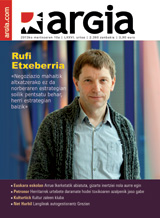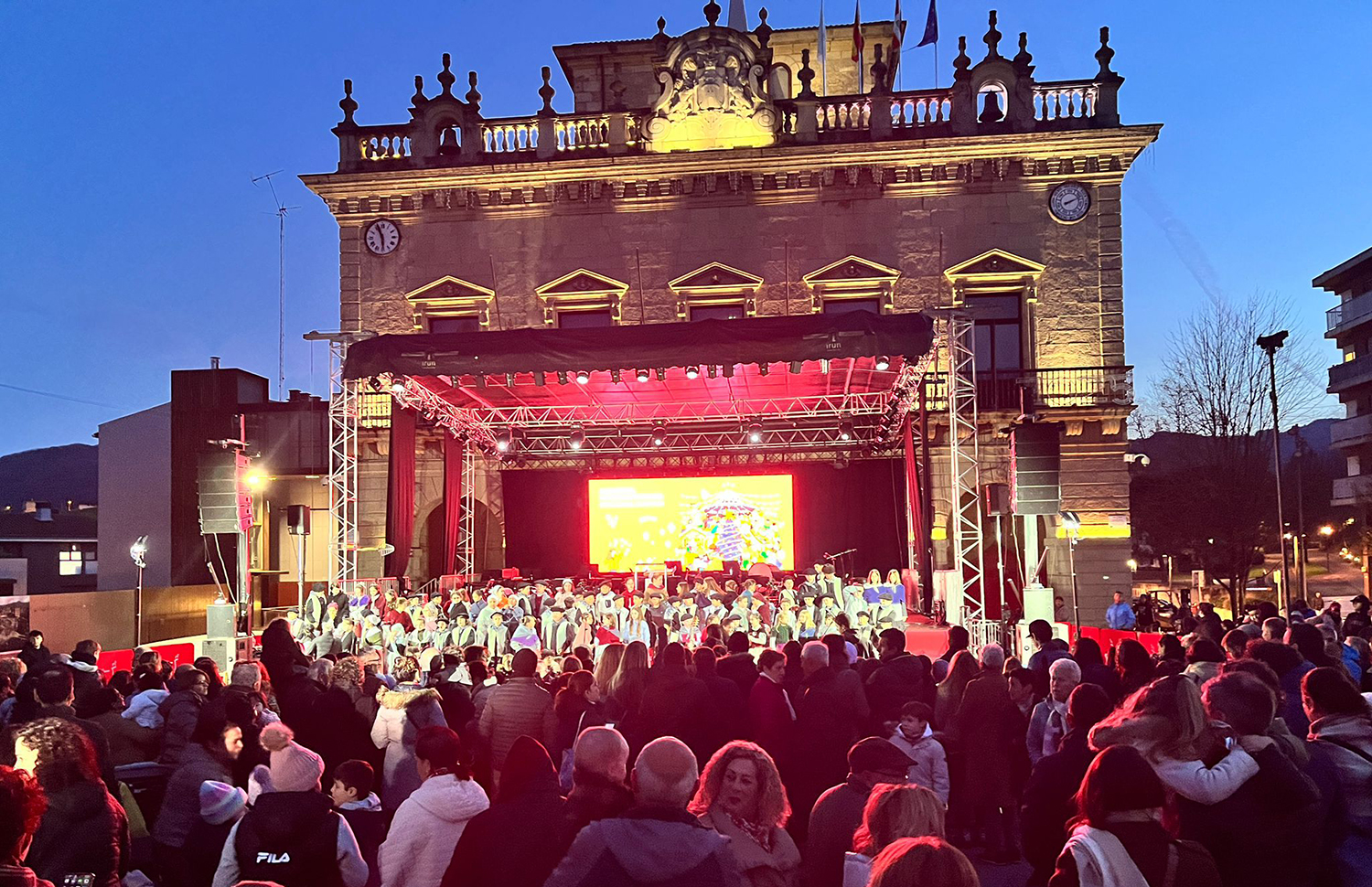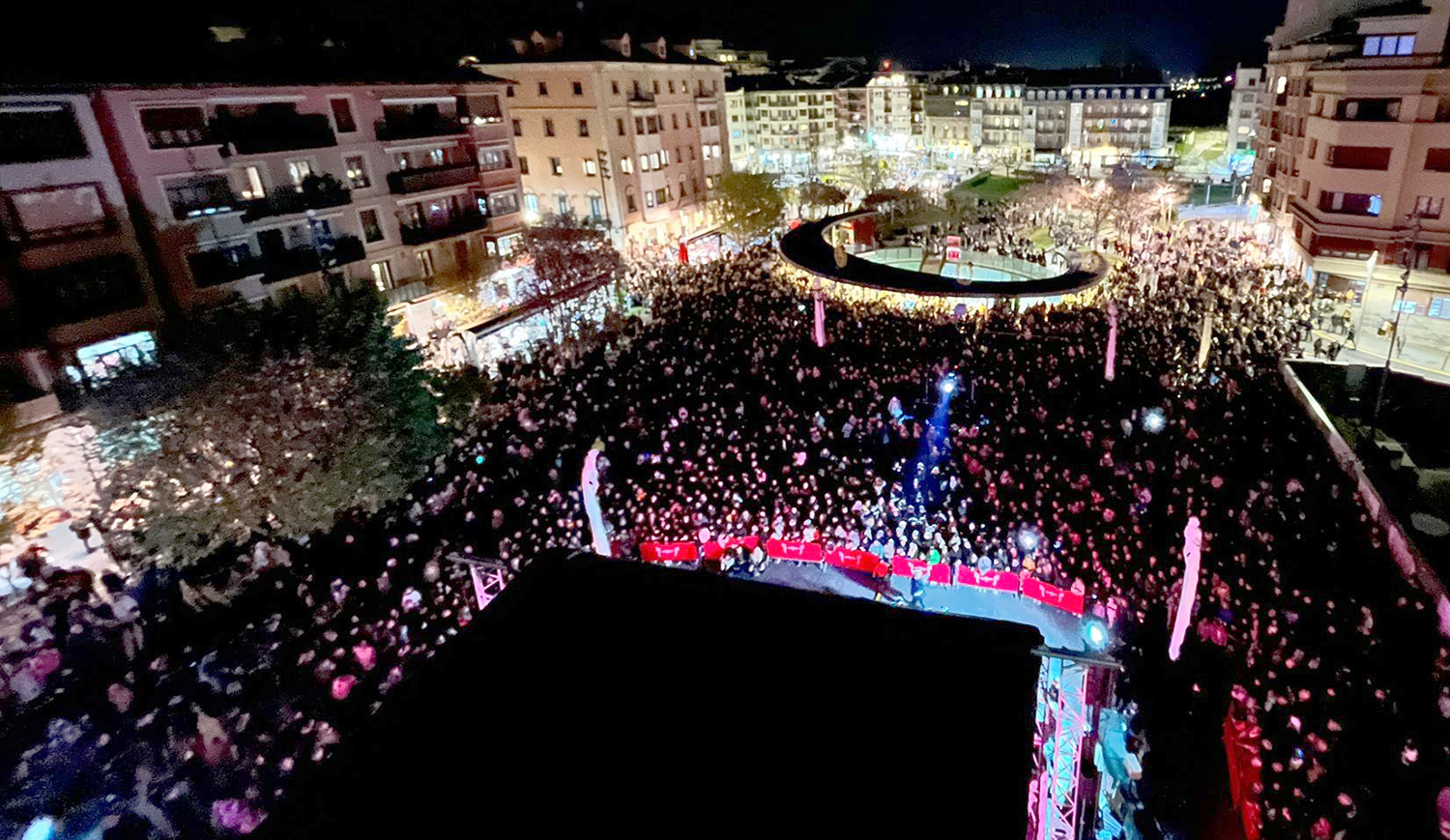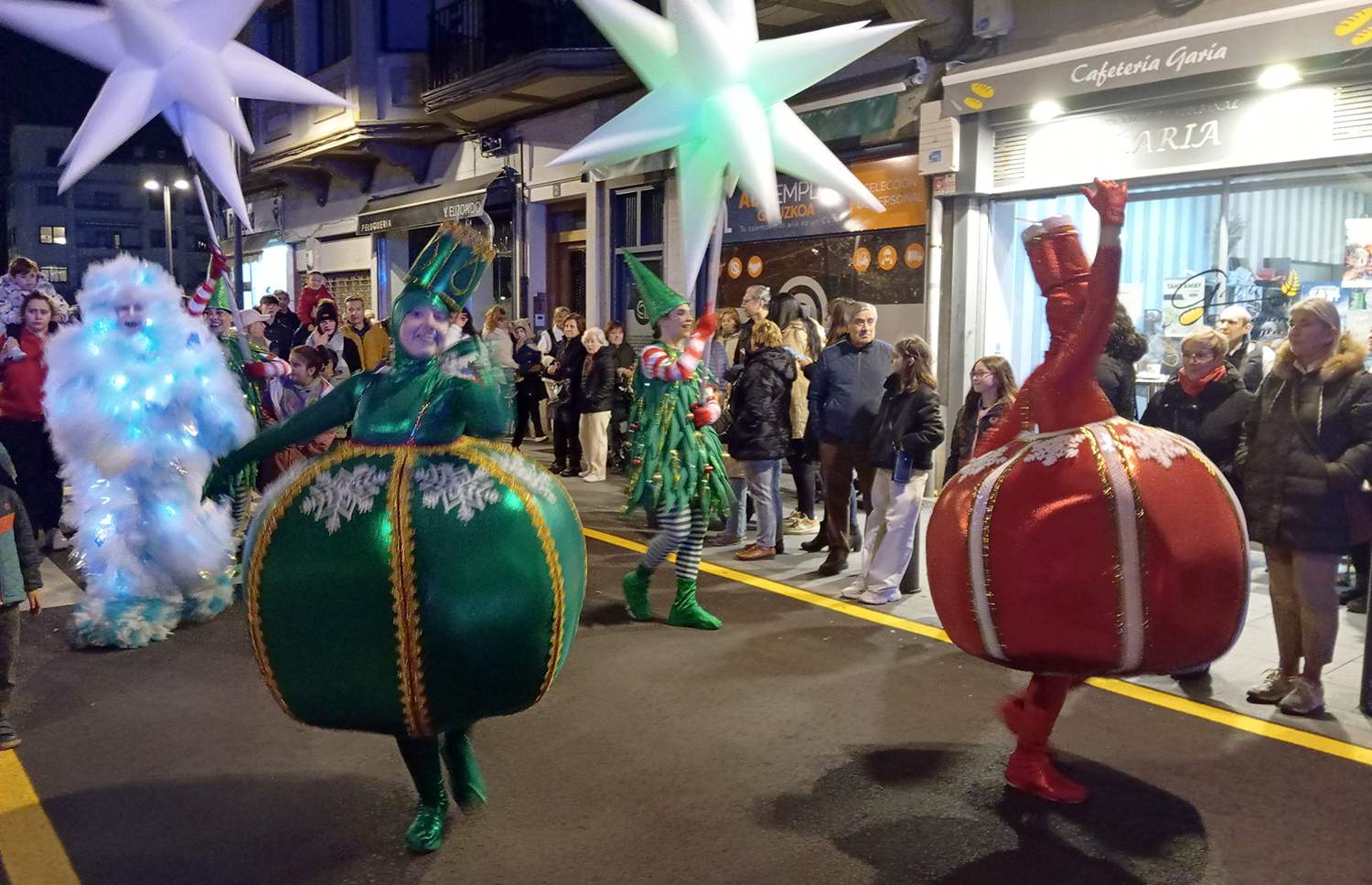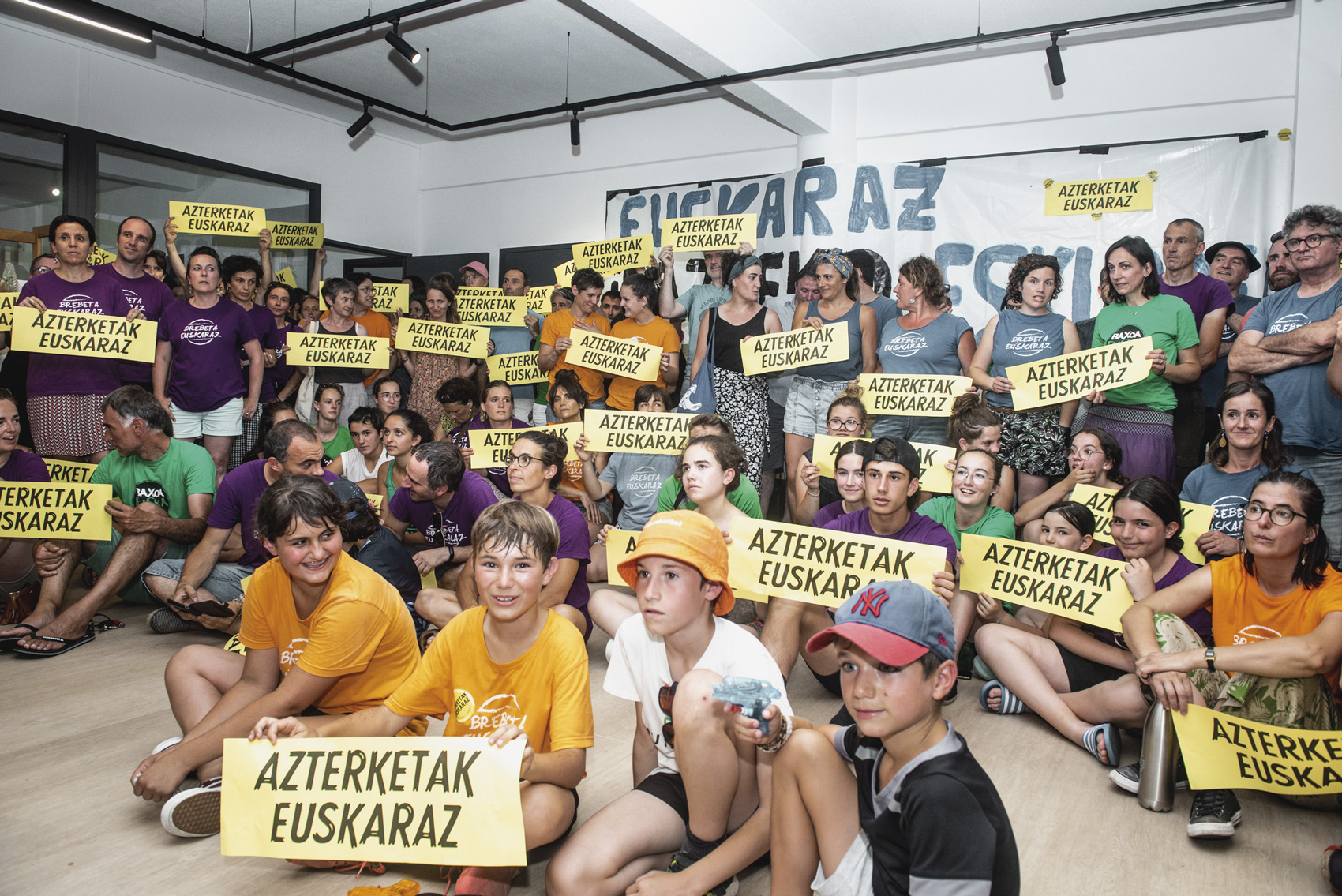The City Hall and the citizens will agree on the Basque plan
- Now that the cuts are ahead, someone might think that the plans to promote the Basque people have no place in the Basque people. In Markina-Xemein, on the contrary, it has been agreed to deal with the crisis and activate the country. The Euskera Commission of the City of Donostia-San Sebastian will develop a new plan for the promotion of the Basque Country during the Holy Week thanks to citizen participation.
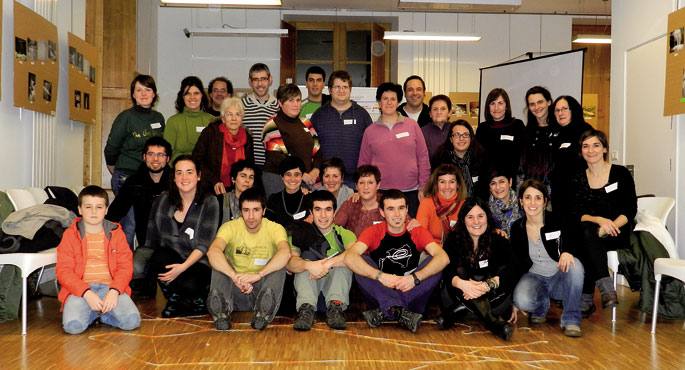
In Markina-Xemein (Bizkaia) it is spoken in Basque, but also in Spanish. Therefore, and in view of the need for the City to renew the Euskera Development Plan, they have begun to work to activate the citizenship around the Basque Country. During the months of January and February, which were planned in advance, two working meetings were held and some 70 people wanted to work together. “We have inherited the Basque Country, but now we have consciously realized the situation of our people.” Naroa, a member of the cultural association Escabias bidean, has acknowledged that, although the association has long taken the decision to operate in Euskera, it has come as a surprise, to the point that in many areas Euskaldunes do not normally speak in Euskera. Eneko Arrate also agrees on that. “We have received Euskera naturally. We have always heard that the Lea Artibai district is a ‘zone’, that here we are safe to be quiet. But we have noticed that the transmission is not secure,” if it is not put to work. In both meetings he participated as a member of the Youth Assembly.
They agree that, apart from the City Hall, the people also have to work for the Basque people, in addition to each working in Euskera in their associations or groups.
One of the reasons for the proactive attitude that the people wanted to create is the lack of associations of the Basque people. The first EHE group already existed, but it has long ceased to function. They were reassured in the village. The Commission of the Basque Country of the City worked and the Promotion Plan of the Basque Country was in force. However, seeing the situation and “after two years of stoppage, with a change of government and less money for the economic crisis, it was thought to start to rethink some things in the people”. That's what Iratxe Lasa tells us. For eight years he has been a local Euskera technician and today it is Elhuyar Aholkularitza who is in charge of launching the process in his village. The working formula they have proposed allows the work of social cohesion; in addition, “unlike many other areas, there is a great consensus around the Basque Country”, which also helps to speak. In fact, “the City Hall has to be in charge of creating the Euskera Service and defining the linguistic policy, but how far should the City Hall be the single agent?” Irma Etxeberria is the Basque councillor. She also believes that, although the Euskera Commission fulfils its role, the work for the Basque Country will be much more dynamic with the direct participation of the citizens, and that it is time to “decide between everyone and everyone where we want to go”.
Successful calls
They are very happy with the response of the two working sessions. For two days, three working tables and eight small working groups were held to better understand the situation of the Basque people. Thus, citizens from sectors such as culture, sport, youth, school, the elderly, business, commerce, etc. were cited. What they have all put into value: the diversity of the participants and the broad participation.
“Although the impressions received we already knew them beforehand, we now know from the citizens what the situation is in each of the areas of the town,” explains Etxeberria, “it was intended to activate a network of Euskaldunes and activate it each from its scope, the association.” The meetings were also attended by Senegalese Souleymane Sarr. He is a member of the association Asema de senegalese de Markina-Xemein and has defined the working meetings as a “meeting point”. “We participate in other activities that are carried out in the people, when we have the opportunity, but these kinds of dynamics are very appropriate for many of us to relate to the Basque country.” In fact, among immigrants “we do not see, at least at first, what the Basque Country brings us. But, once you have lived here, over time, you realize that to be part of the village, you also have to know and know the Basque”. Sartu has already started studying, but working hours are not compatible with the Basque classes. “Our proposal has been to create meeting spaces in Basque,” he told us.
Yours was one of the proposals contained in the two working sessions on 24 January and 7 February. But not the only one. In fact, an 8-year-old who, according to Eneko Arrate, “told us that many of the cartoons you see are in Spanish and that in school breaks they are also in Spanish. This shows that we also have to put it on our side, to make more use of the language that has given us.” The search for this involvement has been the driving force of the process and “people are eager to participate. We have also noticed this among young people, although there were few people under the age of 25, and we have to work there,” Arrate stressed. The members of Markina-xemein have thought that it is up to them to make a “chip change”; “the attitude of the majority towards the Basque Country has been that of the community,” Arrate said.
Coping with the crisis with collaboration
Aware of the cuts in public budgets, they wanted to put Markina-Xemein’s imagination into dance. “There is no money, but to work for the Basque country it does not take much money; at least to activate the people,” said the Basque councilor and member of Elhuyar. “The key is to strengthen the joint work to deal with the cutbacks of the crisis, so that money does not condition the promotion of the Basque Country.” There is a word that has spread a lot across the network and that we can also bring here: coworking. It is meant to cooperate and to take advantage of everything there is. In our case, auzolan has a great tradition and, in this case, you can say that you want to keep it in Markina-Xemein.
Thus, it is now up to the Commission of the Basque Country of the City to collect the witness: to evaluate the report with the photographs taken by all the working groups in the meetings held between the citizens. The Euskera Commission participates in the three political parties with representation in the locality and several associations of the municipality.
Therefore, for Easter the process is planned to be completed and the plan presented, collecting the contributions of the citizens and this activation being the motor.









